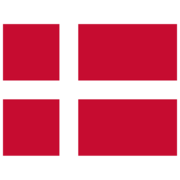Fiscal subject related
Denmark has implemented the European standard on e-invoicing (EN-16931) using the Universal Business Language (UBL) 2.1. The national standard, known as OIOUBL, is based on UBL 2.0. The country also utilizes the Peppol BIS Billing 3.0 format and the NemHandel platform for e-invoicing. This comprehensive system ensures seamless electronic transactions and adherence to European standards.
Furthermore, Denmark's e-invoicing system incorporates the OIO Reliable Asynchronous Secure Profile (OIORASP) for secure and reliable electronic communications between public entities and their suppliers. This infrastructure supports efficient and secure invoicing processes, promotes transparency, and reduces administrative burdens.
Currently, e-invoicing in Denmark is well-developed but not yet mandatory for B2B transactions. Businesses can issue invoices in several ways, including:
- Paper-based invoices
- PDF invoices with an e-signature or a complete audit trail
- Electronic Data Interchange (EDI)
However, this will change soon due to the adoption of the "Bookkeeping Act" in 2022, which mandates digital bookkeeping. Under this new law, accounting, including invoicing, must be conducted digitally using either:
- Digital bookkeeping software is certified by the Danish Business Authority (Erhvervsstyrelsen, or ERST).
- An individual digital bookkeeping solution was developed in compliance with the law.
This law covers all accounting processes, and as a result, B2B e-invoicing will become mandatory, similar to the existing requirements for B2G transactions. E-invoices will need to be transmitted through either the public NemHandel platform or the Peppol network, using formats such as Peppol BIS 3.0 (EN16931-compliant) or the local OIOUBL format, which will also be updated to be EN16931-compliant.
The implementation of the Bookkeeping Act will follow a staged roll-out based on company size and the type of digital bookkeeping solution adopted. The timeline for compliance is as follows:
- January 1, 2024: Publication of all certified digital bookkeeping systems.
- July 1, 2024: Medium and large companies using certified accounting software.
- January 1, 2025: Medium and large companies using custom software.
- January 1, 2026: Financial companies of any size and personally-owned companies with an annual turnover exceeding 300,000 DKK (~40,000 €) in 2024 and 2025.
"Medium and large companies" refer to those already required to submit an annual report under the Annual Accounts Act. Invoices must generally be archived for five years.
Other news from Denmark
New document was uploaded: EV-chargers from the Fiscalization Perspective in Denmark
 Denmark
Author: Ivana Picajkić
Denmark
Author: Ivana Picajkić
The purpose of this document is to explain rules regarding the treatment of EV chargers for electric vehicles in Denmark in relation to fiscalization. The document will explain whether they are subjects of fiscalization or not, whether there are some special rules and regulations, or if there are some special rules. Read more
Subscribe to get access to the latest news, documents, webinars and educations.
Already subscriber? Login


Denmark’s Economic Council Rejects Lower VAT on Groceries
 Denmark
Author: Ivana Picajkić
Denmark
Author: Ivana Picajkić
Denmark’s Economic Council advises against lowering VAT on food, citing high costs, management difficulties, and minimal benefits for needy households. They recommend direct financial support for low-income families and subsidies for healthy food instead, emphasizing the simplicity of Denmark’s current single VAT rate of 25%. Denmark’s top economic advisers have warned against lowering VAT o... Read more



Denmark Introduced New Coins Featuring the Current Monarch
 Denmark
Author: Ivana Picajkić
Denmark
Author: Ivana Picajkić
Denmark introduced redesigned coins on December 2, 2025, featuring King Frederik X through updated portraits and monograms, along with a new symbol inspired by the octagonal layout of Amalienborg Palace Square. The new designs apply to the 20-, 10-, 5-, 2-, and 1-krone coins, while all existing coins remain legal tender and continue to circulate. Danmarks Nationalbank introduced new Danish coins i... Read more



What’s Changing in Denmark: New E-Invoicing, SAF-T 2.0, and ViDA Requirements
 Denmark
Author: Ivana Picajkić
Denmark
Author: Ivana Picajkić
Denmark, like many EU countries, is gearing up for major regulatory changes such as VAT in the Digital Age (ViDA). The country is moving toward a more automated digital economy by updating its e-invoicing standards, strengthening digital bookkeeping rules, and aligning national systems with future EU requirements . Modernising e-Invoicing standards Denmark is updating its national docume... Read more



Denmark Announces New Nemhandelsregister Update
 Denmark
Author: Ivana Picajkić
Denmark
Author: Ivana Picajkić
Denmark has announced a new Nemhandelsregister (NHR) update—covering NHR Core, API, SMP, and PoRS—bringing stability, security enhancements, and a key fix ensuring the validator now correctly handles overlapping profiles. The release, deployed to demo on 19 November and expected in production on 26 November 2025, may cause brief disruptions but requires no actions from market participants. The Dan... Read more



Denmark Releases Updated OIOUBL Schematron
 Denmark
Author: Ivana Picajkić
Denmark
Author: Ivana Picajkić
The Danish Business Authority released OIOUBL 2.1 schematron version 1.16.0, enhancing e-invoice data quality with CO2 data checks and stricter currency code controls. Implementation is required by November 27, 2025. The Danish Business Authority has released version 1.16.0 of the OIOUBL 2.1 schematron as a final version. The update is minor and focuses on improving data quality in e-invoices. Th... Read more



Denmark: Sale of Christmas Calendars is VAT Exempt
 Denmark
Author: Ivana Picajkić
Denmark
Author: Ivana Picajkić
The Danish Tax Council has classified Christmas calendars involving discounts and prize draws as a single, composite service exempt from VAT, treating them as lotteries. Read more
Subscribe to get access to the latest news, documents, webinars and educations.
Already subscriber? Login

